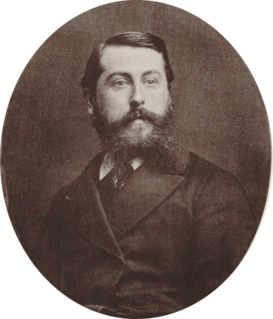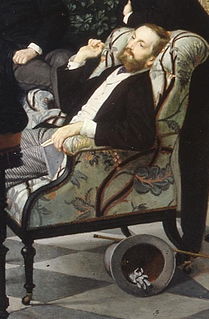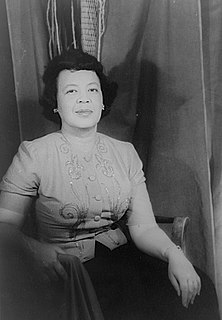Biography
Evelyn LaRue Pittman, was an African American Opera composer, writer, and musician during the Harlem Renaissance. Pittman was born in 1910 in McAlester, Oklahoma. Her interest in music began at a young age, and she began composing songs in the first grade. Her musical interest continued into high school, where she participated in school musicals and sang in their "well-known choir", of which she was the first Black member. [1] Evelyn La Rue Pittman’s story is that of ingenuity, brilliance, creativity and unwavering determination. She grew up in Oklahoma and Highland Park, Michigan and taught school for a period living in White Plains, New York, and Oklahoma for 38 years. In the wake of the death of Martin Luther King Jr., Pittman became proactive creating the musical drama “Freedom Child”. She later would tell a writer for the Washington Post in the article entitled “The Road to ‘Freedom’, June 15, 1981, how King’s death not only motivated her but transcended the overall disappointment, sadness and pain she felt and that of also her students.</ref>Jacqueline Trescott (1981-06-15). "The Road to 'Freedom'". The Washington Post . Washington, D.C. ISSN 0190-8286. OCLC 1330888409. A more definitive search of the WorldCat provides further details </ref>https://worldcat.org/identities/lccn-nr97004213/</ref> Pulling together a group of talented students, she channeled the energy that she felt and that of her students into a creative production and “Freedom Child” was born. Her dogged, industrious spirit, culminated in a worldwide tour and reviews as a lauded musical drama framed around King’s 13 years of activism. Pittman a tall, slender, regal woman, raised the funding and embarked on a worldwide tour. Her cast of students were groomed into young professionals for an authentic production whom she took to Sweden, Norway, Denmark, England, Scotland, Ghana, Italy and Liberia, and the Concert Hall stage of the Kennedy Center. She was determined to keep King’s legacy alive. On the wall of her Oklahoma home, reminiscent of the worldwide tour experience hung a picture made at Tivoli Gardens in Copenhagen. Columnist for the New York Amsterdam News, Herb Boyd, wrote an article entitled “Evelyn La Rue Pittman, teacher and composer of folk operas and spirituals” in 2017 in remembrance of the legacy she left the world.</ref> https://amsterdamnews.com/news/2017/09/07/evelyn-la-rue-pittman-teacher-and-composer-folk-op/</ref> The article reveals the collaboration with Zelia Breaux, renowned maverick of musical styles and how as a teacher and educator, Breaux was influential in creating a noted city band that inspired the likes of jazz immortals, Duke Ellington, Charlie Christian and Jimmy Rushing. With Pittman operettas and other community programs ensued under her influence, and Pittman was soon fully devoted to scoring her own compositions and books, including “Rich Heritage,” published in 1944 and updated in 1968. Rich Heritage is a children’s book composed of brief biographies and songs about famous Americans. At the end of “Freedom Child” performances, and before the final curtain call, the cast tearfully sang “We shall overcome” moving the audience. Pittman wrote the lyrics, compose and arranged the music, designed the props and did so on a limited budget. When asked was it meaningful, by the Washington Post interviewer, Jacqueline Trescott, her answer was a resounding “yes!" Her goal was achieved, as a Social Science and music major being a connection of educational and interpersonal relations and Pittman's endearing desire for a better understanding of the powerful historical contributions of great leaders and other notable people of inspiration. Now given a voice of pride, a young girl later said 'You know before I got into 'Freedom Child,' if a white kid said anything wrong to me, I would let her have it, but now I don't feel that way.'" Pittman succeeded in transcending hate with knowledge and it healed. Freedom Child was initially named “Freedom for Every Mother’s Child.” Before the worldwide tour, it first premiered at the King family church, Ebenezer Baptist, in Atlanta on Easter Sunday 1971. The publicity around the opening included a powerful review from Rev. King Sr., saying "I have seen many productions based on the life of our son Martin, but the one we have seen here today. . . is the most authentic." The lyrics cover social conditions, as well as the particulars of King's life from the Montgomery, Ala., bus boycott in 1955 through his murder in Memphis. The music includes all styles. A tall, statues, poised woman with a quick wit and sense of humor combined with an indomitable spirit best describes the essence of Evelyn La Rue Pittman. Her conversations and mannerisms were that of one who was self-made and expected the same self-imposed perfection and authenticity from others making her a dynamic role model and teacher. In 1945 Pittman compiled "Rich Heritage." Rich Heritage was a book of short stories and songs about 21 famous African Americans including Marian Anderson. Rich Heritage was followed in 1956 by a full-length Parisian opera, "Cousin Esther," created while living there for a year and a half. In 1980, in Oklahoma and retired, she wrote the musical “Jim Noble,” detailing the heroic efforts of an African American messenger who became a historic folk hero in Oklahoma for his role in moving The Great seal of Oklahoma making Oklahoma City the Capital. After the Premiere in 1980, a reporter for The Oklahoman wrote: "Unsophisticated yet naively appealing, "Oklahoma's Jim Noble" is an exercise in grassroots theater which let a large cast, drawn from all age groups, relive events associated with the state's early years, vicariously, through the medium of musical drama. At that level, it can be applauded."</ref> https://www.oklahoman.com/story/news/1982/11/27/jim-noble-musical-naively-appealing/62865376007/</ref> Pittman was an avid writer and composer saying, "I find no difficulty in writing. I must say I am prolific, and if I have something to say, I say it". She was also the Director of the Evelyn La Rue, dynamic interdenominational choir documented by The Gateway to Oklahoma History.</ref> https://gateway.okhistory.org/ark:/67531/metadc564926/?utm_source=home</ref> Her professional training included study with Kemper Harreld, a well-known African American concert violinist, pianist and organist at Spelman College.</ref> https://en.wikipedia.org/wiki/Kemper_Harreld</ref> It was during her college years that she became committed to telling the story of black history through music. She wrote compositions for solo voice and spiritual arrangements. And, while at Spellman College a footnote in the book, “The Story of Spelman College” by Florence Mead, out of print, documents her musical leadership. She spent a summer at Juilliard, obtained a master's degree from the University of Oklahoma, that culminated in private classes with Nadia Boulanger in Paris. Pittman said that Boulanger, ". . . wouldn't try to make you into a carbon copy of some other composer. Nadia Boulanger, focused on developing a student’s specific gifts and talent. Pittman’s musical life was a daily companion to her teaching, writing, arranging gospel songs, appearing on the radio for 14 years in Oklahoma and organizing choirs. Her ingenuity can be seen in the way Pittman transported the musical Freedom Child worldwide and to many venues, churches, concert halls, through a word-of-mouth support system. This is exampled by the way Pittman carried the Freedom Child from campus to church to concert hall then worldwide. For example, a friend and fellow teacher who was a classmate of King Jr.'s mother arranged the 1971 performance. Pittman became even more motivated for the first European tour in 1972 when she learned that an African American, Jerome Holland, was the U.S. Ambassador to Sweden. Pittman immediately understood the educational significance for her students to see him in action, as a role model and her interracial cast endorsed the idea. In fact, the Kennedy Center one-night date materialized through positive responses from her production by many. It is reported that a friend of Pittman's attended a convention during the summer and heard Archie Buffkins, president of the Kennedy Center's National Committee on Cultural Diversity, describe a program that gave visibility to minority artists. The friend told Pittman. Pittman began corresponding with Buffkins. She sent him the score, reviews, taped excerpts and had 100 friends write letters of support. Buffkins stated, "The first thing we liked was the material and its relationship to a historical figure," said Buffkins, "I didn't see the highly refined composition techniques, but it was a different treatment of a life in a musical setting and employed the talents of young people." This was Pittman's originality. Pittman was then provided by the Kennedy Center a production grant of $4,000 and for in-house services. Industrious, determined Pittman, then raised the finances for transportation and living accommodations for her cast of students. Pittman prided herself on inclusive representation. There were 23 cast members ranging in age from 8 to 80 meeting this particular goal. There were three PhDs, a pharmacist, a domestic worker, a bank messenger, representing all walks of life. Her theater works, not only included "Cousin Esther, folk opera but also "Again the River," and "Freedom Child," which have been performed in the United States, Europe, and Africa. Today a video of her composition "Anyhow" sung beautifully by the Moses Hogan Singers, reveals her brilliance and can be seen on You Tube videos.</ref> https://www.youtube.com/watch?v=ASCefRvgM9M</ref> Pittman would be inducted into the Oklahoma Women's Hall of Fame in 1986.</ref> https://library.okstate.edu/search-and-find/collections/digital-collections/oklahoma-womens-hall-of-fame/inductees#1986link</ref> The image of Evelyn La Rue Pittman is part of collections created by Carl Van Vechten. Van Vechten photographed many of the most famous and influential figures of his day as well as up-and-comers and artistic outliers. He was a promoter of literary talent and a critic of dance, theater, and opera.</ref>https://beinecke.library.yale.edu/collections/highlights/carl-van-vechtens-portraits</ref> In his collection there are six photographic prints of Pittman which Van Vechten created in New York, September 18, 1962 now part of the Yale University Library Digital Collection.</ref>https://findit.library.yale.edu/catalog/digcoll:3433721</ref>
Education
Pittman attended public school in Oklahoma City, and later attended Spelman College and Oklahoma University, where she received her master's degree. While in school, Pittman studied violin, trombone, and harmony. She also received a life certificate from Langston University to teach music and social studies in the state of Oklahoma. In New York, Pittman received a permanent certificate from Columbia University to teach public school music on any level in the New York Education Department, and ended up teaching in the Greenburgh School District. Pittman then studied composition at the Juilliard School of Music and was likely the first black Oklahoman to study at the school. She then collaborated with Zelia Breaux on operettas and other community programs. Pittman has also studied under famed composer Nadia Boulanger in Paris and Fontainebleau, France, upon the recommendation of her composition teacher, Harrison Kerr of the University of Oklahoma, and Robert Ward at the Juilliard School of Music. [2]
Works
"Rich Heritage", written by Pittman, was published in 1944 and updated in 1968. It is a book for children filled with biographical sketches and songs about famous Americans. She was known for her choral arrangements of spirituals, and her major works were musical dramas. Her folk opera, Cousin Esther was performed in Paris in 1957.
Pittman has also done many arrangements of spirituals and choral works that show the influence of black church music in particular. Some of her published works are “Any How,” “Rock-a-mah Soul,” “Sit Down Servant,” "Joshua,” “Nobody Knows the Trouble I See,” and “Tramping”. [3]
"Freedom Child"
Frustrated by the 1968 assassination of Martin Luther King Jr., Pittman began to write. Two years later, Pittman, a music teacher at Woodlands High School in Hartsdale, New York, produced and directed "Freedom Child," a musical drama about King, performed by her Woodlands students. After Pittman and her students received rave reviews in New York, they took the musical on the road. The group traveled throughout the state of New York and eventually took "Freedom Child" to 11 different countries.
Pittman made a videotape of "Freedom Child" for school children and her Oklahoma friends. "It's something I've always wanted to do. Now children and other Oklahomans who didn't have the opportunity to see Martin Luther King will be able to learn about him," she said. "I wrote the musical because I had a genuine interest in King. When he marched on Washington, D.C., I decided to fly down to join the 250,000 people who gathered. I knew I couldn't face my students if I didn't go."
Pittman, who wrote the story, the music and the lyrics for "Freedom Child," said it took her two years to write the initial production. A perfectionist who continues to work on the musical drama, Pittman said, "If I don't stop writing soon, it will never be finished. Since the first performance in 1971, Pittman has deleted three songs and added three new songs to the musical. She said the songs represent all types of music because King's mother, Alberta, said her son liked all kinds of music. Pittman said King's mother invited her to bring her students to Atlanta to perform the musical at the Ebenezer Baptist Church. She said King's father, the Rev. Martin Luther King Sr., originally was anxious about watching the musical but later said it was the most authentic work he had seen on the subject. [4]












